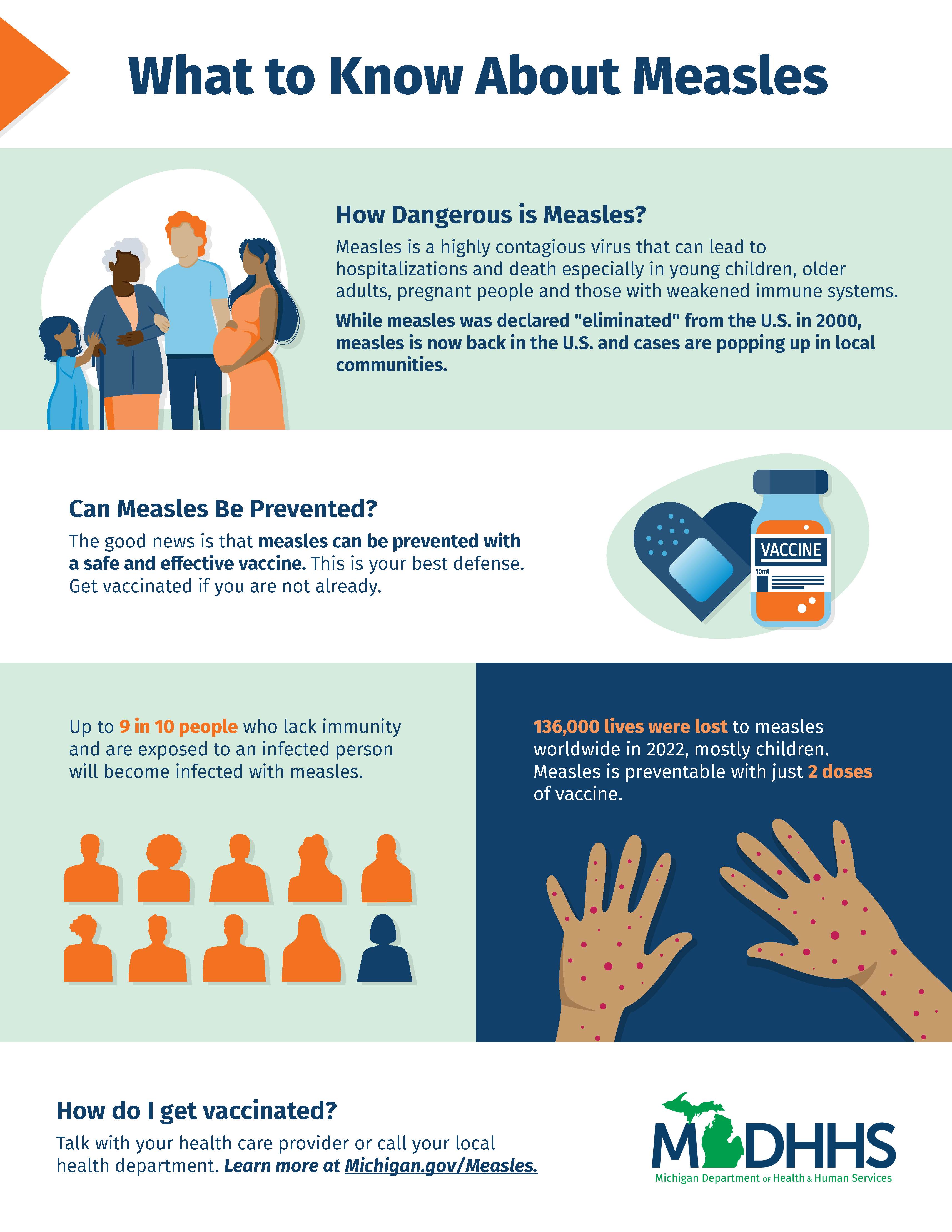Measles
Information about measles and how to protect your family.
Measles Information
What is measles?
Measles is a contagious and serious respiratory disease caused by the measles virus. It is very contagious and, in rare cases, can be deadly.
How is it spread?
Measles spreads when a person infected with the measles virus breathes, coughs, or sneezes.
This illness is more common in late winter and early spring. People can transmit the virus 4 days before the rash starts to 4 days after the rash appears.
What are the symptoms of measles?
Measles starts with a fever that can get very high. Some of the other symptoms that may occur are:
- Cough
- Runny nose
- Red eyes
- Ear infection
- Pneumonia
- Diarrhea
- Rash of tiny red spots that start on the face & spread to the rest of the body
How is measles treated?
There is no specific medicine to cure measles. If a person develops symptoms, they should consult their health care provider for the diagnostic testing to confirm diagnosis of the measles virus.
People should:
- Get plenty of rest.
- Drink plenty of fluids to prevent dehydration (i.e. water, juice, or tea).
- Take non-aspirin medication (acetaminophen, ibuprofen) for fevers and body aches.
- The sick person should stay at home until 4 days after the appearance of the rash.
Page last updated: [5/3/2024]

